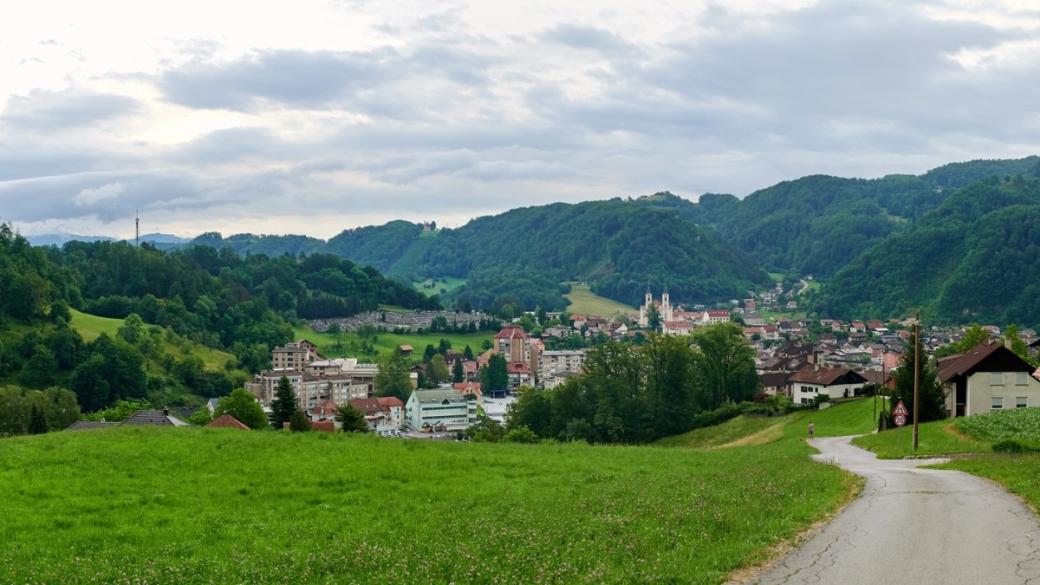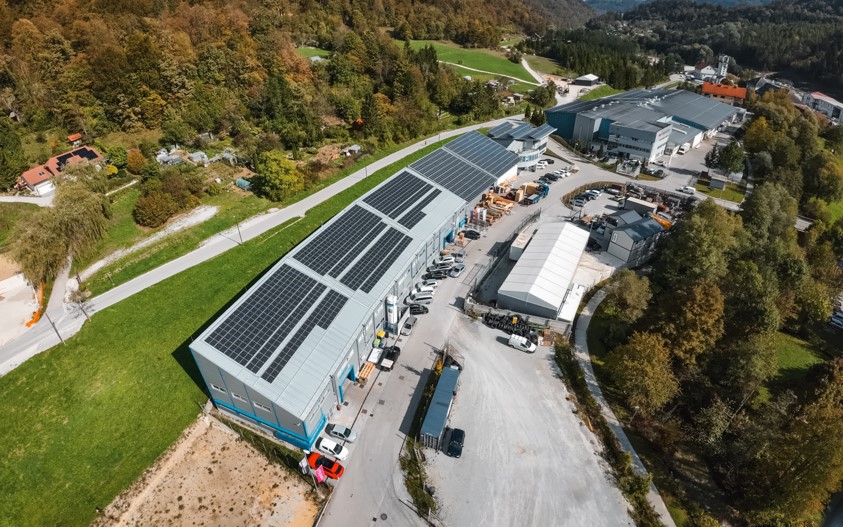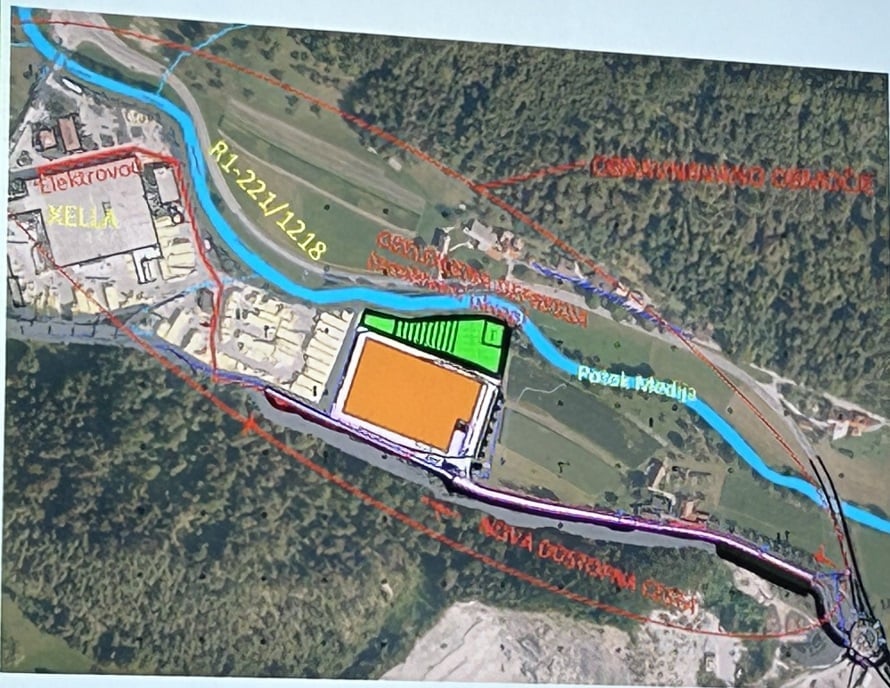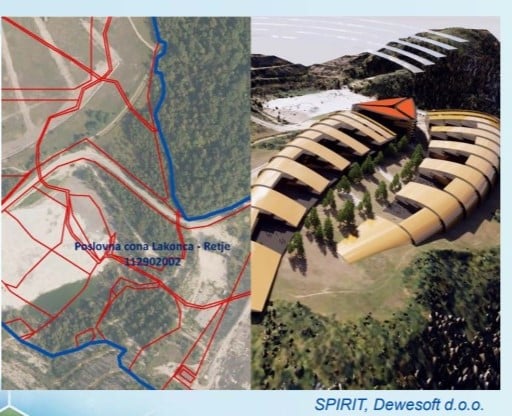Slovenia's Zasavje region: A post-coal future is possible
The mines have long been closed, but with funds from the Just Transition Fund, municipalities are investing in other projects that will boost the economy

© ECONOMIC.BG / Depositphotos
Zagorje ob Savi is a small, picturesque town located about 50 kilometers east of the Slovenian capital, Ljubljana. It is surrounded by hills at whose feet flows a tributary of the Sava - an emblematic river for the region and Slovenia. Nowadays, almost nothing reminds visitors of the mining past of Zagorje ob Savi and the other towns in the Zasavje district after a long transformation away from coal in the period 1994 - 2014. Only the tallest chimney in Europe remains rising high as a monument of bygone days.
However, the transformation process is not yet fully complete, even if the mines and power plants have long since closed. The Just Transition Fund is giving a new impetus to the entire region, which can have access to 74.6 million euros. These will be invested in projects aimed at giving an additional boost to the economy.
"Shock" is how locals in Zagorje ob Savi describe the moment they and their loved ones learned that the mines would be shutting. With their closure, major businesses that were directly or indirectly related to coal, such as concrete factories and others, also stopped working.
The main problem of Zasavie now is related to labor migration - most people commute to neighboring municipalities or the capital to work. The projects aim to ensure that these people stay, work, and live in their hometowns.
According to official data, during the first restructuring period, the entire region lost over 5,000 jobs, which is 27% of all positions in Zasavie between 2000 and 2011. During the entire period of gradual cessation of coal mining activities in the region, the lost jobs led to an outflow of about 11% of the region's population. It now numbers about 60,000 people.
Despite all the social and economic difficulties over the years, small towns in the region have not stopped making efforts to engage the workforce. Several projects are already operating in Zagorje, oriented towards promoting entrepreneurship and helping in the transformation process. We will tell you more about them in two special podcast episodes.
At a recent conference in Zagorje ob Savi, the projects that will give a new impetus to the transformation and which are financed by the Just Transition Fund were presented.
Science Center for New Technologies
Among the main initiatives to be implemented in the region is the establishment of a Center for Development, Demonstration and Training of Zero-Carbon Technologies, known as the DUBT Center. This project will provide new opportunities for scientific research and innovation in the field of clean technologies, thus creating conditions for new economic diversification.
The total cost of the project is €32 million, of which €27.3 million is provided by the Just Transition Fund. The investment has already been launched with a first installment of €9 million at the end of 2023. The aim is to create a new research center, which will be led by the Institute of Chemistry, as part of the strategic effort to support the transition.
According to Prof. Robert Dominko, the leader behind the project, the center's technologies can be used not only by the region, but also by industries in Slovenia's neighboring countries. The center is a chance to attract companies from other regions, as it will be one of the few in Europe specializing in such technologies.
"This way we will be able to attract new investors and stimulate the local economy," he pointed out.

Source: Institute of Chemistry
The development and training center will focus on battery technologies, hydrogen technologies and carbon dioxide capture. According to Prof. Dominko, one of the main challenges of these technologies is their high initial cost, but he believes that with progress in development, they will become more accessible and cost-effective.
A decade ago, the price of a battery was $1,200 per kilowatt-hour, now it is $50," he shares, noting that these technologies have already proven their potential.
The center will develop various prototypes that can then be implemented in various industrial spheres. The project manager said that back in 2015, the Institute of Chemistry realized that it needed to move from purely academic developments to tech-oriented ones that could actually be applied in practice.
The opportunity to create such a center will not only allow young people to stay in the region, but will also create new jobs and development opportunities," he says.
For the transition to be successful, training and staff preparation is no less important. According to the professor, the new center will be not only a technological hub but also a place for the training and development of new generations of specialists. The center will employ at least 15 highly qualified individuals.
We are working together with the local community and universities to build a new workforce capable of adapting to new technologies and industries," the professor added.
Business incubator
Another town in the region – Hrastnik – is taking a serious step towards reviving the local economy with the project for a business incubator called “Kompreshaus”. It will be built by modernizing an existing compressor station, turning it into a center for the development of small and medium-sized businesses. The project, estimated at around 1.4 million euros, is partly financed by the Just Transition Fund, with the remaining funds to be provided by the municipal budget.
This is not just an incubator - this is an investment in the future of Hrastnik and the region," commented Bozidar Roglic.
The incubator will occupy 460 sq.m., of which 310 will be provided for use by entrepreneurs. The remaining part will be for additional services such as a café. The project is aimed at stimulating the growth of SMEs, creating new jobs and restructuring the regional economy. Particular attention is paid to sustainability - a solar power plant will be built, which will make the building energy-independent.

Source: Občina Hrastnik
The exterior of the building will be preserved as part of the cultural heritage and will serve to educate and inspire those who will come in the future.
We want future generations who will attend courses and training here to have an idea of what life was like before," Roglic commented.
The incubator will provide access to office space and equipment on preferential terms for start-ups. It will also provide additional support through training and mentoring in partnership with the Regional Development Agency. It will focus on green technologies and sustainable entrepreneurship and will work to attract non-governmental organizations and projects related to innovation and scientific research.
The project is expected to be completed by 2026.
Business area
The Municipality of Zagorje has received the green light from the Just Transition Fund to finance a project related to the construction of a business zone in the district of Kisovec. There was once a coal mine there, which has not been operating for a long time. The aim is to build a new business zone on the land damaged by mining activities, to attract small and medium-sized enterprises. The project is almost complete, and the spots in the zone have been filled.
The total value of the investment is 1.7 million euros, of which 1.5 million euros come from the Just Transition Fund.
Construction work on the Kisovec area began at the beginning of the year, with work on the construction of electrical and plumbing infrastructure during the first half, said the mayor of Zagorje ob Savi, Matjaz Švagan.
The first private investor has already started construction of business facilities in the new zone," he pointed out.
The project aims to meet the significant demand for business spaces in the region, which are limited due to topographical conditions and the past as a coal region. "We cannot allocate large territories, but it is important for us to use each space rationally. These small areas will be designated for economic purposes and will contribute to the sustainable development of the region," the mayor explained.

In addition to the economic goals, the project is in line with ecological principles and is being implemented with a view to sustainable development and environmental protection. The mayor emphasized that the project would help develop the circular economy in the region.
This will allow us to better manage water flows and ensure safety for the area. This will not only build a business zone, but also ensure sustainability and safety for future generations," he added.
According to him, the project is important not only for the economic recovery of the region but also for attracting new investments and creating new jobs.
And another business zone
However, this will not be the only business zone in the district, as two more have been planned – in Trbovlje and Hrastnik. Tadej Spitalar told us more about the Trbovlje zone. He explained that the investment in it is 9.8 million euros, of which 7.5 million euros are provided through a public-private partnership.
This is a huge investment for our municipality - almost half of our budget. We are happy that our efforts have paid off," commented Spitalar.
Although the project is not officially defined as a public-private partnership, it demonstrates successful cooperation between the local government and the private sector. “We hope that the legislators will facilitate this process in the future because we believe that this is the key to success,” explained Spitalar.
The 30-hectare area in the northern part of Trbovlje, used for centuries as dumping grounds for mining waste, will be completely transformed. After stabilization and geological assessment, the terrain is ready for construction. “We have received all the necessary permits. We have even identified an invasive orchid species that will be moved to a safe location,” said Spital.

The Trbovlje business zone is expected to be completed by the end of 2026, with letters of intent already signed with potential investors. With this project, the town is sending a clear signal to the future – from a charcoal past to a green and sustainable development.
The largest company in the region, Dewesoft, plans to establish an entrepreneurial space in the area. It will be named Katapult - City of Acrobats, inspired by the ability to change and adapt to the different conditions in the region.
We expect a total of about 1,000 jobs over the next decade, which will transform the region's economy," he added.
The project is built on the principles of sustainable development. In addition to providing modern infrastructure for businesses, the area will include a park dedicated to the mining history of the region. Old machinery and equipment used in the mining industry will be renovated, and an open-air museum will be created to preserve the heritage of the area.
We plan to make the space green and circular by strictly controlling which companies can settle here.”
Co-Funded by the European Union. Views and opinions expressed are however those of the author(s) only and do not necessarily reflect those of the European Union or the Managing Authority. Neither the European Union nor the Managing Authority can be held responsible for them.
Translated by Tzvetozar Vincent Iolov


 Gloria Hristova
Gloria Hristova